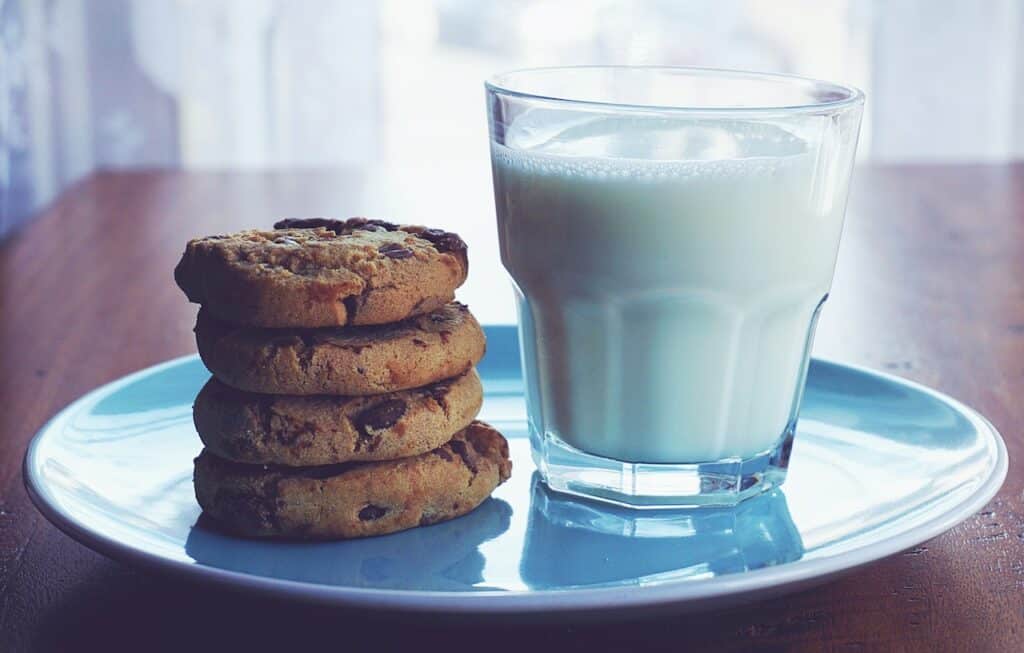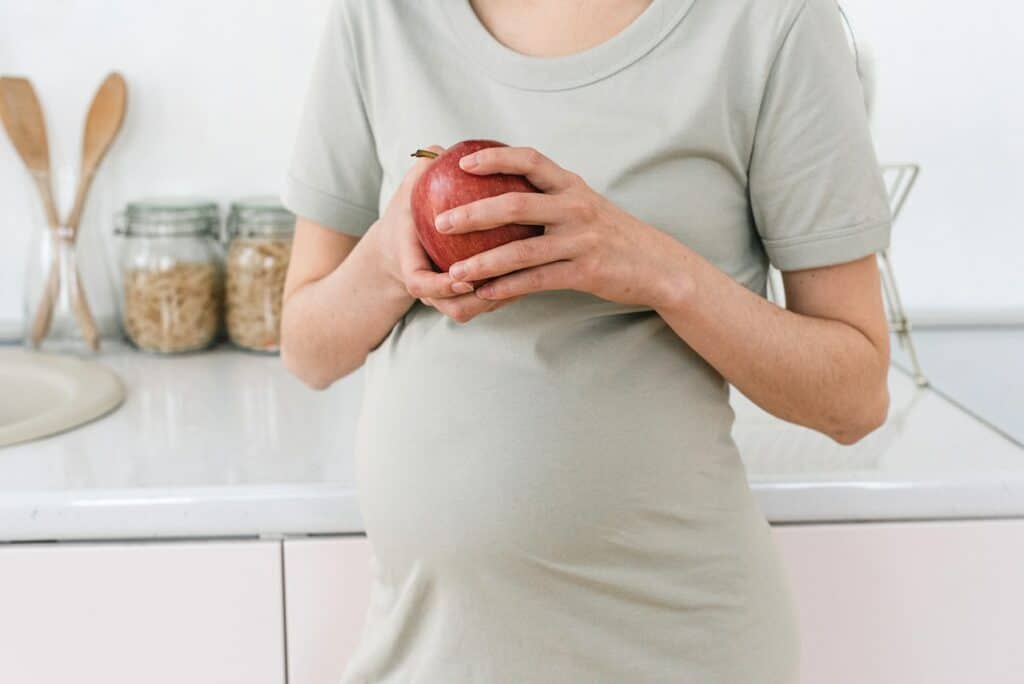Lactation cookies have become increasingly popular among new mothers as a way to boost milk production. But what about pregnant women? can you eat lactation cookies while pregnant? The answer is not a straightforward yes or no, as there are some potential risks and considerations to keep in mind.
Understanding Lactation Cookies
Lactation cookies are typically made with ingredients that are believed to help stimulate milk production, such as oats, brewer’s yeast, and flaxseed. Some also contain other beneficial nutrients like iron and calcium. While there is limited scientific research on the effectiveness of lactation cookies, many women swear by them as a way to increase their milk supply.
Benefits of Lactation Cookies for Pregnant Women
While lactation cookies are marketed towards breastfeeding mothers, some pregnant women may also find them beneficial. The nutrients in lactation cookies, such as iron and calcium, can be especially important during pregnancy. However, it’s important to note that some ingredients in lactation cookies, such as fenugreek, are not recommended for pregnant women. It’s always best to consult with a healthcare provider before adding any new foods or supplements to your diet during pregnancy.
Key Takeaways
- Lactation cookies are typically made with ingredients that are believed to help stimulate milk production.
- Pregnant women may find lactation cookies beneficial due to their nutrient content, but should consult with a healthcare provider before adding them to their diet.
- Some ingredients in lactation cookies, such as fenugreek, are not recommended for pregnant women.
Understanding Lactation Cookies

Lactation cookies are a popular snack for breastfeeding mothers, but can they be consumed during pregnancy? Lactation cookies are designed to help increase milk supply in lactating women. They contain natural ingredients such as oats, flaxseed, and brewers yeast which are known as galactagogues, substances that promote lactation.
Homemade lactation cookies are often preferred as they can be made with natural ingredients and can be customized to suit individual preferences. Oats are a key ingredient in lactation cookies as they are a good source of iron, fiber, and protein. Fenugreek is another popular ingredient that is believed to increase milk production. However, pregnant women should avoid consuming fenugreek as it can cause uterine contractions.
Brewers yeast is another important ingredient in lactation cookies. It is a rich source of B vitamins and minerals such as iron, zinc, and selenium. Flaxseed is also commonly used in lactation cookies as it contains omega-3 fatty acids and lignans which can help improve milk quality.
It is important to note that lactation cookies should not be used as a substitute for a healthy diet. They should be consumed in moderation and as part of a balanced diet. Pregnant women should also consult their healthcare provider before consuming lactation cookies or any other supplements.
In summary, lactation cookies can be a helpful snack for breastfeeding mothers, but they should not be consumed during pregnancy without consulting a healthcare provider. Homemade versions can be made with natural ingredients such as oats, flaxseeds, and brewers yeast which are known to promote lactation. However, pregnant women should avoid consuming fenugreek and should always prioritize a healthy and balanced diet.
Benefits of Lactation Cookies for Pregnant Women

Lactation cookies are a popular snack for breastfeeding mothers, but can they be consumed during pregnancy? The answer is yes, and there are several benefits of lactation cookies for pregnant women.
1. Provides Essential Nutrients
Pregnant women need a balanced diet that provides essential nutrients for their growing baby. Lactation cookies are often made with ingredients that are rich in nutrients such as fiber, protein, iron, and calcium. These nutrients are important for the healthy development of the baby and can help prevent common pregnancy-related issues like constipation.
2. Extra Calories and Energy
Pregnant women require extra calories and energy to support the growth of their baby. Lactation cookies are a great snack option that provides extra calories and energy without compromising on nutrition. They can help satisfy a sweet tooth while still maintaining a healthy diet.
3. Contains Beta-Glucan, Lignans, and Phytoestrogen
Lactation cookies are often made with ingredients like oats, flaxseed, and brewer’s yeast, which contain beta-glucan, lignans, and phytoestrogen. These compounds have been shown to have several health benefits, including improving heart health, reducing inflammation, and potentially reducing the risk of certain cancers.
4. Alternative to Dairy Products
Some pregnant women may have trouble consuming dairy products due to lactose intolerance or other dietary restrictions. Lactation cookies can be a good alternative source of calcium and vitamin D, which are important for bone health and development.
In summary, lactation cookies can be a nutritious and satisfying snack option for pregnant women. They provide essential nutrients, extra calories and energy, and contain beneficial compounds like beta-glucan, lignans, and phytoestrogen. However, it is important to consume them in moderation as part of a balanced diet.
Potential Side Effects

While lactation cookies are generally considered safe for consumption during pregnancy, there are some potential side effects that women should be aware of.
One of the most common side effects of lactation cookies is headaches. This is because many lactation cookies contain fenugreek, which is an herb that is known to cause headaches in some people. However, not all women will experience headaches after consuming lactation cookies, and the severity of the headaches can vary from person to person.
Another potential side effect of lactation cookies is gastrointestinal discomfort. This can include bloating, gas, and diarrhea. This is because many lactation cookies contain ingredients like oats, which can be difficult for some people to digest. It is important for women to pay attention to their bodies and stop consuming lactation cookies if they experience any gastrointestinal discomfort.
In rare cases, lactation cookies can also cause allergic reactions. This is more likely to occur in women who have a history of allergies to nuts or other ingredients commonly found in lactation cookies. Symptoms of an allergic reaction can include hives, swelling, and difficulty breathing. Women who experience these symptoms after consuming lactation cookies should seek medical attention immediately.
Overall, while lactation cookies are generally safe for consumption during pregnancy, it is important for women to be aware of the potential side effects and to stop consuming them if they experience any discomfort or adverse reactions.
Role in Breastfeeding and Milk Production

Lactation cookies are often marketed as a dietary supplement to increase milk production and improve breastfeeding outcomes. However, it is important to note that there is limited scientific evidence to support these claims.
The primary mechanism by which lactation cookies may affect milk production is through the inclusion of galactagogues, which are substances that are believed to increase milk supply. Common galactagogues found in lactation cookies include oats, flaxseed, and brewer’s yeast.
It is important to note that while galactagogues may have some effect on milk supply, they are not a substitute for proper breastfeeding techniques and frequent nursing or pumping. In fact, the most effective way to increase milk supply is through the principle of supply and demand, where the breast is stimulated to produce more milk in response to frequent and thorough emptying.
Additionally, lactation cookies should not be relied upon as a sole source of nutrition for nursing mothers. A balanced and varied diet that includes plenty of fluids is essential for maintaining milk production and overall health.
In summary, while lactation cookies may have some potential benefits for milk production, they should not be considered a magic solution for low milk supply or poor breastfeeding outcomes. Nursing mothers should focus on proper breastfeeding techniques and frequent nursing or pumping, as well as a balanced and varied diet, to support milk production.
Consulting a Lactation Consultant
When it comes to pregnancy, it is important to consult a lactation consultant before consuming lactation cookies. Lactation consultants, also known as International Board Certified Lactation Consultants (IBCLCs), are specialists in breastfeeding and lactation. They can provide expert advice on lactation and help women navigate the complexities of breastfeeding.
A lactation consultant can provide valuable guidance on whether lactation cookies are safe to consume during pregnancy. They can also offer advice on the right time to start consuming lactation cookies and the optimal amount to consume. In addition, lactation consultants can help women who are struggling with breastfeeding and provide support and guidance throughout the breastfeeding journey.
It is important to note that not all lactation consultants will have the same opinion on consuming lactation cookies during pregnancy. Some may recommend avoiding them altogether, while others may suggest consuming them in moderation. It is important to consult with a lactation consultant who is knowledgeable and experienced in this area.
In addition to consulting with a lactation consultant, it is also important to consult with a healthcare provider before consuming lactation cookies during pregnancy. Healthcare providers can provide valuable advice on the safety of consuming lactation cookies during pregnancy and can help women make informed decisions about their dietary choices.
Overall, consulting with a lactation consultant and healthcare provider is essential when it comes to consuming lactation cookies during pregnancy. These experts can provide valuable guidance and support throughout the breastfeeding journey, ensuring that both mother and baby are healthy and happy.
Inclusion in Pregnancy Nutrition

When it comes to pregnancy nutrition, there are many foods and supplements that are essential for the healthy development of the baby. Lactation cookies have become increasingly popular among new mothers as a way to boost milk supply, but can they be consumed during pregnancy as well?
While lactation cookies are generally safe to eat during pregnancy, it is important to note that they are not a substitute for a healthy and balanced diet. Pregnant women should prioritize consuming foods that are high in nutrients such as prenatal vitamins, salmon, nuts, and leafy greens.
It is also important to be aware of foods to avoid during pregnancy such as raw or undercooked seafood, including cod and shrimp. These foods can contain harmful bacteria and toxins that can be harmful to both the mother and baby.
When considering the inclusion of lactation cookies in a pregnancy diet, it is important to read the ingredients list carefully. Some lactation cookies may contain herbs or supplements that are not recommended for pregnant women, such as fenugreek.
In summary, while lactation cookies can be included in a pregnancy diet, they should not be relied upon as a sole source of nutrition. Pregnant women should prioritize consuming nutrient-dense foods and supplements that are recommended for a healthy pregnancy.
Homemade Lactation Cookies Recipe

For those who are pregnant and looking for a natural way to boost their milk supply, homemade lactation cookies can be a great option. These cookies are often made with ingredients that are known to increase milk production, such as oats, brewer’s yeast, and flaxseed.
Here is a simple recipe for homemade lactation cookies:
Ingredients:
- 1 1/2 cups all-purpose flour
- 1 teaspoon baking soda
- 1 teaspoon salt
- 3 cups rolled oats
- 1 cup unsalted butter, at room temperature
- 1 cup brown sugar
- 1/2 cup white sugar
- 4 tablespoons brewer’s yeast
- 4 tablespoons flaxseed meal
- 2 large eggs
- 1 teaspoon vanilla extract
Instructions:
- Preheat the oven to 350°F (175°C).
- In a medium bowl, whisk together the flour, baking soda, and salt.
- In a large bowl, cream together the butter, brown sugar, and white sugar until light and fluffy.
- Add the brewer’s yeast and flaxseed meal to the butter mixture and mix well.
- Beat in the eggs and vanilla extract.
- Gradually stir in the flour mixture, then fold in the rolled oats.
- Drop rounded tablespoons of dough onto a baking sheet lined with parchment paper.
- Bake for 10 to 12 minutes, or until the edges are golden brown.
- Allow the cookies to cool on the baking sheet for 5 minutes, then transfer them to a wire rack to cool completely.
It is important to note that while homemade lactation cookies can be a healthy and delicious way to increase milk supply, they should not be relied on as the sole method of increasing milk production. It is also important to drink plenty of water and eat a balanced diet that includes fruits, vegetables, and healthy fats.
Overall, if you are looking for a homemade version of lactation cookies, this recipe is a great option to try.
Other Considerations

While lactation cookies can be a helpful tool in increasing milk supply for breastfeeding moms, there are some other considerations to keep in mind when consuming them during pregnancy.
First and foremost, it’s important to make sure the ingredients in the lactation cookies are safe for pregnant women. Some lactation cookie recipes may include herbs or supplements that are not recommended for pregnant women, such as fenugreek or blessed thistle. It’s always a good idea to check with a healthcare provider before consuming any new foods or supplements during pregnancy.
Additionally, it’s important to keep in mind that lactation cookies are not a substitute for a healthy and balanced diet during pregnancy. While they may provide some additional nutrients, they should not be relied upon as the sole source of nutrition for a pregnant woman.
Another consideration is that some lactation cookies may contain raw eggs or other ingredients that can pose a risk of foodborne illness. Pregnant women should be cautious when consuming any foods that may increase their risk of foodborne illness.
Finally, it’s important to remember that stress and postpartum depression can also impact milk supply. While lactation cookies may help boost milk supply, they should not be relied upon as the sole solution for low milk supply. It’s important for pregnant women to prioritize self-care and stress management techniques to support their overall health and wellbeing during pregnancy and beyond.
Related Posts:
Frequently Asked Questions
Yes, lactation cookies are safe to eat during pregnancy. They are made with natural ingredients such as oats, flaxseed, and brewer’s yeast, which are all safe for pregnant women to consume. However, it is important to consult with a healthcare provider before adding lactation cookies to your diet during pregnancy.
There is limited scientific evidence to support the claim that lactation cookies can increase milk supply. However, many women report that they have seen an increase in their milk supply after consuming lactation cookies. It is important to note that lactation cookies should not be used as a replacement for seeking medical advice and treatment for low milk supply.
Lactation cookies can be eaten at any time during breastfeeding or pumping. It is recommended to start eating lactation cookies after the baby is born and breastfeeding is established. This is usually around 2-3 weeks after delivery.
The time it takes for lactation cookies to work can vary from woman to woman. Some women may see an increase in their milk supply within a few days, while others may take longer. It is important to continue to breastfeed or pump regularly while consuming lactation cookies to see the best results.
Lactation cookies are a convenient and tasty way to consume ingredients that may help support milk production. They are also a good source of fiber and protein, which can help keep breastfeeding mothers feeling full and satisfied.
Yes, lactation cookies can be eaten even if not breastfeeding. However, it is important to note that lactation cookies are formulated with ingredients that may help support milk production, so they may not provide the same benefits for non-breastfeeding individuals.

Iesha is a loving mother of 2 beautiful children. She’s an active parent who enjoys indoor and outdoor adventures with her family. Her mission is to share practical and realistic parenting advice to help the parenting community becoming stronger.
